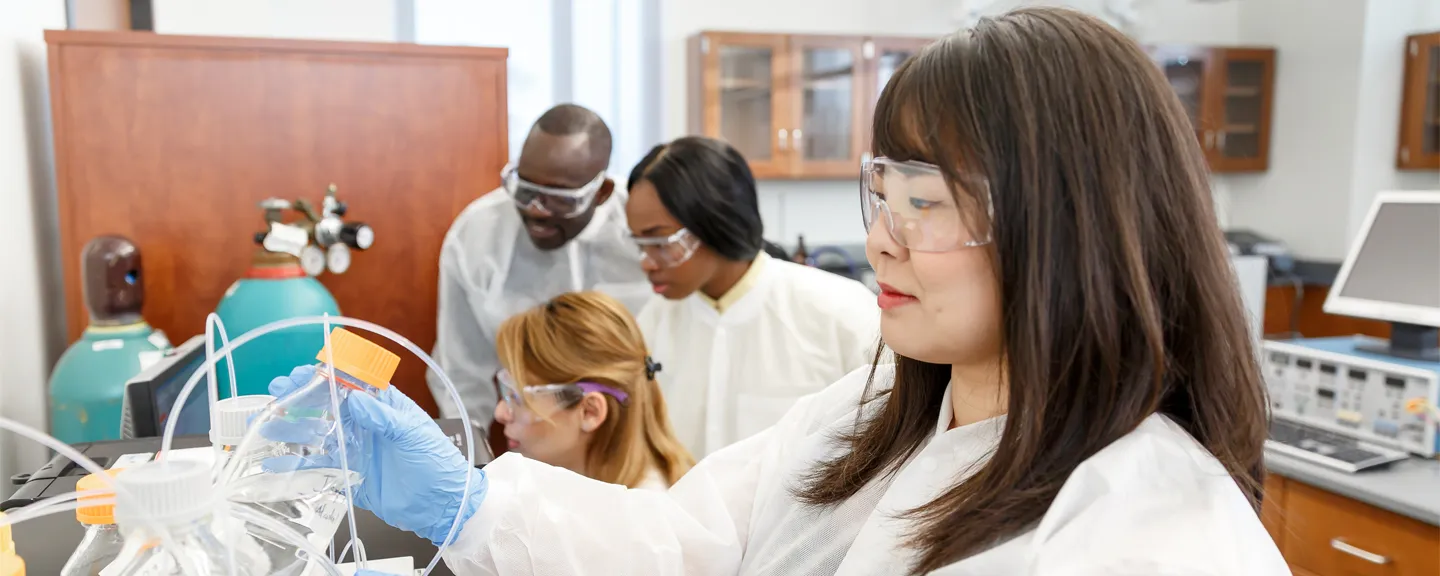- Home
- >
- APU Articles
- >
- News Article
APU Students Make an Impact, Working for Biotech Leaders Developing COVID-19 Drugs
May 04, 2020 | Written By Nathan Foster

One of these biotech leaders, Gilead Sciences, located in San Dimas, has developed a promising medicine for the coronavirus called Remdesivir. “Gilead is a highly ethical pharmaceutical company that does things the right way,” Dyer said. Gilead CEO Daniel O’Day pledged to donate 1.5 million doses of Remdesivir to those afflicted with COVID-19. This will enable up to 140,000 patients to receive the potentially life-saving medicine.
Graduate student Najeh Salamah, M.S. ’20, interns at Gilead, where he has logged more than 900 hours so far working on a data integrity project. He is happy to work for a company striving to find a solution to the pandemic. “The manufacturing department is working around the clock with a huge demand and need for Remdesivir, the experimental drug to treat COVID-19,” Salamah said. “Medicines help diagnose and cure illnesses, which enable us to live a safer and better life. Because of continuous mutations of viruses, we need to have tangible technological advancements in order to keep up with epidemics and pandemics. The coronavirus exemplifies this acute need.”
Several APU biotechnology students work at Grifols, another industry leader. Grifols is currently working on a medicine called Anti-Coronavirus Hyperimmune Globulin, made from the plasma of COVID-19 survivors. The drug contains the antibodies of patients who beat the coronavirus and may help others fight the virus if they become infected. Graduate student Helke Criado, M.S. ’20, interned at Grifols for seven months before securing a full-time position. Prior to Grifols, Criado worked as a clinical laboratory scientist for six years, but chose to make a change. “I decided to transition to the biotech field and found APU’s program. It was the best move I’ve made in my career,” she said.
Criado selected APU because of the program’s success with placing students and graduates in jobs. According to Dyer, the biotechnology industry experiences up to a 40-50 percent employee attrition rate in new hires. “It’s expensive for businesses to hire and train new people. If they move on within a year or so, the enterprise loses that investment,” he said. “At APU, we also focus on the business side of biotechnology, including project management and regulatory affairs. This way, our students are more prepared and well-rounded and companies don’t have nearly as much turnover. Our industry partners love our students.”
According to Dyer, 92 percent of APU’s biotech students get hired immediately after graduation. Many students, like Criado, are hired at the companies where they intern. He believes that Gilead, Grifols, and other pharmaceutical companies also choose APU students because of their strong moral character. Biotechnology professionals often face ethical situations in the development of new drugs and treatments.
“Gilead and other leading industry partners are interested in partnering with APU to create groundbreaking ethical training for the entire industry,” Dyer said.